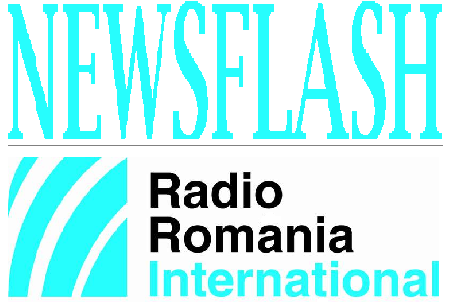March 18, 2014
Click here for a roundup of domestic and international news

Valentin Țigău, 18.03.2014, 12:00
Russian president Vladimir Putin is expected to brief Parliament in Moscow on Crimea’s application to become part of the Russian Federation. On Monday Putin signed a decree recognizing the independence of this separatist region in Ukraine in spite of the West’s decision not to recognize the returns of the referendum on Sunday. The EU and the US have adopted sanctions against some Russian and Ukrainian officials whom they blame for the annexation of Crimea. Brussels has announced travel interdictions as well as the freezing of assets in the case of 21 people, while Washington has resorted to similar measures for 11 officials. Canada and Japan have followed suit also implementing sanctions on Russia. On Monday at the EU foreign ministers summit in Brussels, Titus Corlatean, the head of the Romanian diplomacy, firmly expressed Bucharest’s support for the sovereignty, independence and territorial integrity of Ukraine within the internationally recognized borders.
According to Nicolae Timofti, president of the Republic of Moldova, an ex-soviet country with a Romanian-speaking majority, Moscow’s possible acceptance of an application from Transdniester, a breakaway Russian enclave in the Republic of Moldova, to join the Russian Federation, would be a step in the wrong direction. The Moldovan official has termed such actions as counterproductive. His reaction comes after the speaker of Parliament in Tiraspol, Mihai Burla has sent a letter to the president of the State Duma, the lower house of the Russian legislature, Sergey Naryshkin, in which he recalls that 97.2% of Transdniester’s voters stood for joining Russia in the 2006 referendum. We recall that Transdniester de facto came out of Chisinau’s control in 1992, following an armed conflict, which left hundreds of dead and was settled with the intervention of the Russian troops on the side of the separatists. Timofti went on to say that the Republic of Moldova didn’t recognize the returns in the Crimean referendum adding that he would tackle the geopolitical situation with his Romanian counterpart Traian Basescu in Iasi on Wednesday.
US vice-president Joe Biden is in Warsaw for talks with the president and Prime Minister of Poland as well as with the president of Estonia on the latest developments in Ukraine. The US official will also tackle the issue in Vilnius during talks with the presidents of Latvia and Lithuania. Biden is expected to reiterate the USA’s commitments to defending the other NATO members assumed within the North-Atlantic Alliance. Poland and the Baltic states have recently voiced concern about the Russian troops deployment to Crimea. Last week the Pentagon announced intensified joint air defence drills with Poland and also stepped-up participation in defending the air space of the Baltic countries.
Romanian Prime Minister Victor Ponta is paying a formal visit to Greece, a country currently holding the EU half-yearly presidency. High on the agenda are the bilateral relations as well as fresh cooperation projects in the filed of economy, social and cultural life. During the talks with his Greek counterpart, Antonio Samaras, Prime Minister Ponta said that Greece and Romania would always run together regional and European projects to which they are fully committed. Ponta has underlined that Romania and Greece are backing all the decisions adopted at European and transatlantic levels aimed at ensuring Ukraine’s democratic development and its territorial integrity. From Greece the Romanian Prime Minister will fly to Albania, where he has talks scheduled with several high officials there.
NATO anti-missile shield will become operational in Romania as scheduled next year. The spokesperson for the project Richard Lehner has told Radio Romania the Aegis system to be installed in Deveselu, southern Romania, will this summer be put to a series of tests aimed at proving its capability of operating both on sea and land. Last week the US Court of Accounts estimated that out of technical reasons, the implementation of the anti-missile shield in Romania and Poland might be delayed.
Four Hungarian citizens, including two members of the far-right Jobbik party, suspected of carrying out nationalist-extremist activities have been banned to enter Romania for a year. Romanian Interior Ministry says that other persons involved in permanent nationalist activities running counter community norms and national legislation in the field are also being monitored.




























